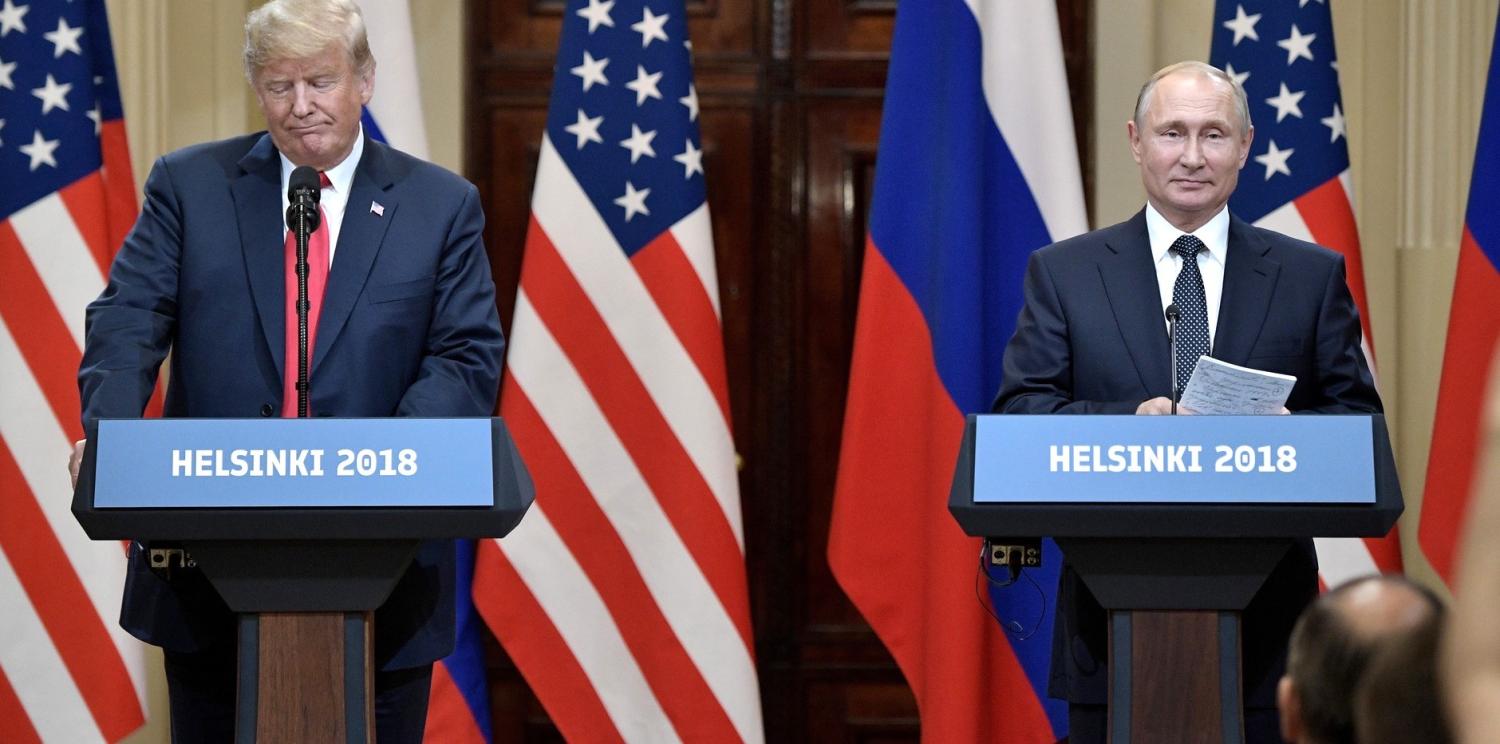The Helsinki Summit, as it was dubbed, saw US President Donald Trump and Russia’s Vladimir Putin come together with a formal agenda to discuss US-Russia relations, disarmament, the Syria and Ukraine crises, and the situation on the Korean Peninsula. But the moment was judged as a contest and a spectacle far more than on what the talks were supposed to deliver.
Moscow declared the winner
In the wake of special counsel Robert Mueller’s indictment of 12 Russian intelligence operatives last week, many hoped that Trump would demand Putin concede to meddling in the 2016 US presidential election. Prior to the summit, the Trump administration had even hinted that the US would take a firmer stance on Russia’s “malign activity” in Syria and the Ukraine. But in the press briefing following the one-on-one meeting (full transcript here), Trump argued the fault was shared.
I hold both countries responsible. I think the United States has been foolish. I think we have all been foolish. We should have had this dialogue a long time ago, a long time frankly before I got to office. I think we’re all to blame.
Prominent voices declared Moscow the winner of the summit. Not only did Trump tacitly accept Putin’s “extremely strong and powerful” denial of election meddling, but he diverted attention away from the issue and fell back on his favourite refrain: Hillary Clinton’s emails. This outcome may not be surprising, and members of Congress have already criticised Trump’s performance at the summit, fearing it will have a deleterious impact on US national interests.
Other important issues were also sidelined. Putin dedicated all of two sentences to the Ukraine; when pushed for further commentary, he recognised the objection by the US to the annexation of Crimea, reasserted Russia’s compliance with international law, and promptly moved on.
During a subsequent television interview, Putin also dismissed responsibility for the Skripal attack in the UK.
Trump, meanwhile, took to Twitter to reject criticism of his attitude towards intelligence assessments.
As I said today and many times before, “I have GREAT confidence in MY intelligence people.” However, I also recognize that in order to build a brighter future, we cannot exclusively focus on the past – as the world’s two largest nuclear powers, we must get along! #HELSINKI2018
— Donald J. Trump (@realDonaldTrump) July 16, 2018
Words, at least
Amid a chorus of voices criticising Trump’s behaviour at the Helsinki Summit, Trump himself sought to praise the fact of dialogue:
Our relationship has never been worse than it is now. However, that changed as of about four hours ago. I really believe that. Nothing would be easier politically than to refuse to meet, to refuse to engage. But that would not accomplish anything.
He found support. Dmitri Trenin, director of the Carnegie Moscow Centre, wrote:
Helsinki will mark the first détente in the four-year-old Hybrid War between Russia and the United States … The two sides would need to come up with potential deliverables and, in the process, reengage with each other after a break of several years … US-Russian relations will not be miraculously transformed as a result. The Hybrid War will continue. But some rules will be laid down, and a measure of dialogue will be taking place.
Let’s not forget the nukes
Arms control is one arena that certainly needs talk. Last year, Graham Allison set out an uncomfortable truth:
While the Soviet Union disappeared, its superpower arsenal certainly did not … However demonic, however destructive, however devious, however deserving of being strangled Russia is, the brute fact is that we cannot kill this bastard without committing suicide.
The New START Treaty will expire in 2021 with no confirmed renewal or replacement in sight. Moreover, there have been accusations from both Russia and the US that the other side is breaching the Intermediate-Range Nuclear Forces (INF) Treaty.
Olga Oliker, director of the Russia and Eurasia Program at CSIS, and Kimberly Marten, chair of the Political Science department at Barnard College, explained their hopes ahead of the summit:
New START, INF and military-to-military contacts are areas where bilateral progress not only is attainable but would represent a real breakthrough … Agreement in these areas would, importantly, not reward Russia for bad behaviour … A focus on arms control and military discussions can ensure that even as Washington and Moscow continue to disagree and compete in years to come, they are better equipped to calibrate their policies and avoid instability.
Talking to the Kremlin
Talking to Moscow doesn’t mean appeasing the Kremlin. It’s necessary to create a distinction between keeping lines of communication open and giving in to Moscow’s demand. Trump sought to cast the US-Russian rivalry in a different light, competitive, rather than dysfunctional. He said of Putin:
I called him a competitor. And a good competitor he is. And I think the word ‘competitor’ is a compliment.

